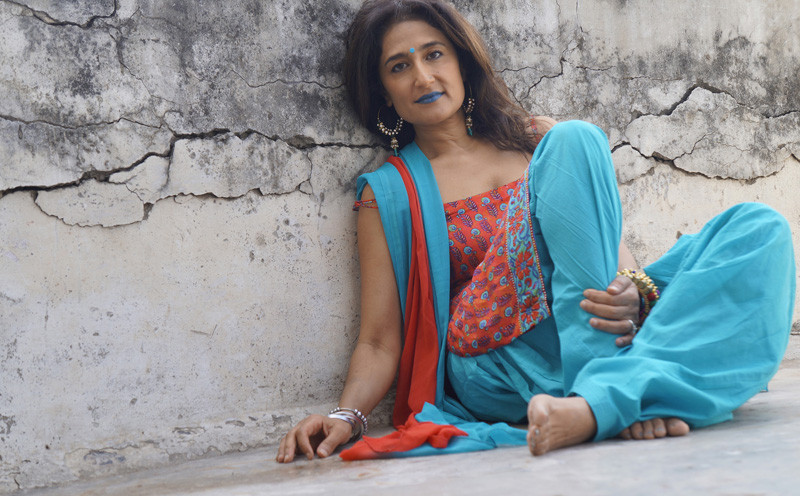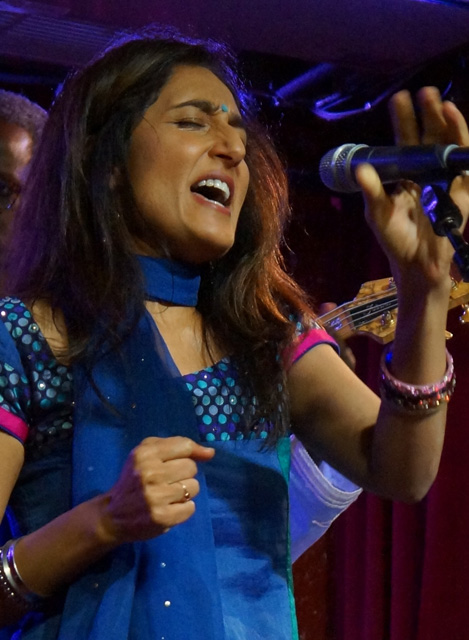Kiran Ahluwalia can’t explain exactly why she was smitten by the sinewy desert blues of Tinariwen, but ever since she encountered the legendary Tuareg rock band from northern Mali, their guitar-driven grooves have increasingly infiltrated her music. Not that she’s abandoned the strikingly beautiful sound that made her a world music star, but when Ahluwalia celebrates the release of latest album Sanata: Stillness (Magenta) at the SFJAZZ Center on Friday, March 20, she brings a stripped-down rhythmic sensibility that was just becoming apparent at her last Bay Area performance in 2011.
Born into a Punjabi family in the northeastern Indian state of Bihar and raised in Toronto, Ahluwalia first made an impression on the world-music scene in the late 1990s with her beautiful ghazals, a love-besotted Persian poetic form that flowered with Sufism in the 11th century. Rather than focusing on classical repertoire, she composed new ghazals by searching out contemporary Urdu poets in the Indian diaspora and setting their verse to music (while also lacing her sets with flirtatious Punjabi folk songs, delivered in rippling clear-water cadences).
If she apprenticed herself to ghazal masters in India to connect with the culture of her birth, Ahluwalia says that her music’s penchant for cross-cultural fertilization flows from Canadian multiculturalism. Many of her first public performances took place at Canadian folk festivals where “they put you on the stage with three or four other bands and expect you to collaborate,” says Ahluwalia, a two-time winner of the Juno Award, Canada’s version of the Grammys.
“Those festivals were my proving ground,” she continues, speaking by phone from her apartment in New York City. “You have to figure out how to enter their songs and make room for them in yours. I’ve collaborated with Celtic fiddlers, Portuguese fado players and Afghan musicians. Then the Tuareg influence came along and it just hasn’t left me. After the honeymoon, there’s this deeper love that inspires me and refuses to go away.”



